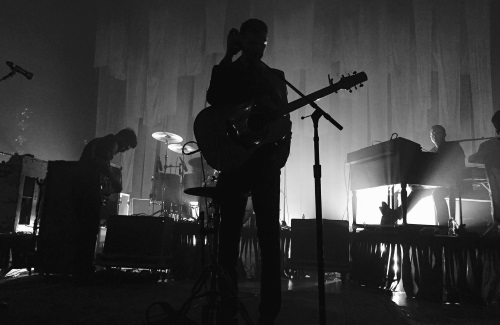Most every time I go to a concert I come with the same feeling – why did it sound so bad?
I’ve posted the following a few years ago, but it’s still holds true things never seems to get much better.
Concert sound reinforcement equipment is better than ever, yet we’re frequently burdened with a mess of auditory goo that just sucks the enjoyment from a live event.
Unfortunately this happens much more than it should, and I think it’s a big reason for many people not wanting to attend as many concerts as they once did. It’s tough enough with the high ticket prices, the “convenience charges,” and the high cost of parking and concessions, but if you add to that a less than perfect concert experience, it doesn’t give one much incentive to return again any time soon.
The fact of the matter is that the majority of concerts really sound bad these days and it’s not because of the venue acoustics. It’s the mix.
I believe that an entire generation of live sound engineers grew up learning the wrong way – that the kick drum and snare are the most important part of a mix. While that may be true in some small way when mixing a record (it’s really important, but not the most important), it’s an entirely different thing mixing live sound, where the vocal should be king.
Common sense says that the softest thing on the stage (the vocals) should get the most amplification and attention. After all, that’s really what people pay to hear (and who they come to see the majority of the time), not the kick drum. And the overuse of subwoofers just makes a boomy venue all the more boomy.
So here are five reasons why I think concerts don’t sound as good as they could:
1. The vocal isn’t featured.
The vocalist is usually the main reason why we’re there. Mix it so we can hear and understand it, please.
2. Over-reliance on subwoofers.
In real life, the only time you hear 20-30Hz is during a thunderstorm, earthquake or other natural phenomena, and adding in too much (as is sometimes the norm) can be a big distraction. Sure, you want to make the music sound bigger than life by adding in all that bottom end, but it shouldn’t be at the expense of intelligibility.
3. Too much kick.
A function of the above two items, many live sound engineers seem to have a myopic vision of the kick drum, spending way more time trying to get a sound at the expense of everything else on the stage. Believe me, most drummers at the concert level are using drums that sound great already. It doesn’t take that much effort to make them sound good.
4. Low intelligibility.
Again a function of the above items, many concert sound engineers seem happy if you can just hear the vocal. But what the concert goer wants is to understand every word. Let’s spend some time on that instead of the kick.
5. Bad mixing habits.
It seems like many live sound engineers never listened to the CD of the band they’re mixing. Sure it’s different mixing live. Sure you have some wacky venues to contend with. But 1, 2, 3, and 4 on this list leads to #5. Now’s the time to break the cycle.
I’m sure this list won’t change the mind of a current concert sound engineer, but if just one kid starting out decides that it might not be the best thing to emulate that guy, we’ll all be the better for it.
Read and comment on the original article here.















